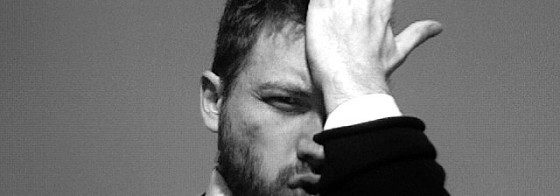When I was 19 years old I made a huge mistake.
It was 1:30am. I was up late on a winter evening with 300 words to go on my university assignment that I had left to the last minute, yet again.
As I was writing, I heard someone call out from downstairs. My flatmate was clearly very excited about something, so I jumped at the opportunity to procrastinate.
I rushed downstairs to see that he had found an article on the net that would give us more hours in the day.
Sounded to good to be true right?
It was.
Sleep experiment
Sleep 8 Hours a night? that only leaves 16 hours for work and play!
Don’t you wish there were more hours in the day?
At university one of my friends and I decided we would try to hack our sleep cycle by reducing our shut eye time. We spent two months sleeping only 4 hours a day. At this point you probably think we were mad, and as it turned out… we were.
Being young and ambitious we were eager to find more hours in the day. What were we going to do with these hours and why were we so eager to lose out on valuable beauty sleep you might ask. Well, personally I wanted more time work on; entrepreneurial projects, my full time study and all the while maintaining a reasonable university social life so I was willing to try anything… that was legal.
So we hit the web and researched how we could do it. We found a number articles on Polyphasic Sleep Cycles, which adapting to having more than one session of sleep per day. We read stories of how people had adopted forms of polyphasic sleep cycles to increase their weekly work output, learn a new language and still allow time to spend with their friends and family.
We were hooked.
We tried a cycle was called the Everyman cycle which involved a core nap of 3 hours which we had from 3am-6am, then three scheduled 20min naps during the day. I could fit this around my lecture schedule and the late nights and early mornings provided plenty of time to focus on work and study.
We read that the first two weeks were supposed to be living hell. This is caused by your body and mind taking time adjust to the new regime, and man, was it painful. As we reached the two week mark we noticed that we were fatigued, grumpy and our memories seemed to be shot.
Not exactly the benefits we were looking for.
We hung in there. Holding on to the dream that I could start changing the world with the extra hours I had while everyone else was sleeping. For two months we both persisted, able function but only just. I focused on the original concept, referring to the first articles we found. I dismissed my body’s more qualitative feedback. My body and my brain were screaming for more shut eye, but I denied it. After two months of sleep deprived living I finally gave up and came out of the haze.
What did I learn?
It turned out to be a failed experiment and I definitely am not recommending that you blindly start sacrificing your beauty sleep here. But I did learn a huge amount about sleep cycles, brain function and human performance in general.
It seems, that this is tendency to challenge conventional wisdom is common for entrepreneurs.
This is not a health site, so I won’t go into too much detail about the science of sleep and human performance. If you are interested in learning more about sleep human performance, I’m a huge fan of Dave Asprey. Dave is a Silicon Valley investor and technology entrepreneur who presents data and information on human performance on the Bulletproof Exec site. He also completed a number of sleep experiments similar to my own, so I found his stuff extremely insightful, you can read his article on sleep here*.
Apart from an introduction to improving human performance, the most important life lesson I gained; is the importance of feedback.
Feedback and Metrics
As scientists and engineers we are familiar with scientific experimentation and the importance of feedback. Whether you experiment in the lab or if you vaguely remember doing experiments in back at university, we know that without data, feedback and a good set of metrics you can’t prove anything.
Quantitative vs Qualitative

In the case of my sleep experiment: where did I fail?
I did prior research, I even validated my hypothesis. Well at least I thought I did. I assumed that the polyphasic sleep cycle would work by relying on someone’s data.
But it didn’t work, for me.
One thing that I didn’t take into account was that there is no size fits all method for the body. Everyone has different physiological needs, and for me, I needed more than 4 hours of sleep. This was due to the fact that I was 19 years old, I was exercising regularly and I wasn’t eating a optimal diet to complement my sleep hacking. All factors that I would later find out that would cause me to require more sleep than I was allowing myself.
Startup Businesses are all Unique
It’s the same for startup business, they are all unique. Every startup has a different set of factors that determine it’s needs. Different customers, a different product and a different strategy. This is why we monitor feedback and metrics right? To make sure our efforts and pulling us towards where we want to go not away from it.
With my sleep experiment I started with the intention of increasing my productivity. I wanted to get more done. I learnt about a potential solution and stuck to it. I measured feedback of how I was sticking to the method without questioning the method I had chosen.
This is a huge mistake to make.
I became attached to the “idea” of the method without paying attention to real world feedback. My body was screaming to me the answer but I wasn’t stopping to listen. I was focused on quantitative results and not paying attention to a more qualitative message that my body and brain was sending me.
Getting attached to a method or solution can cause you to forget about the initial intention and the original goal you are trying to achieve. It can be easy to live in idealism without paying attention to the reality of the real world.
For many entrepreneurs the mistake can be made by becoming attached to a technology or product. Becoming focused on how the technology or product performs rather than questioning the initial assumption.
The initial assumption is that the product offers value to the customer. The mistake many entrepreneurs make is that they focus on monitoring quantitative feedback of the product rather the monitoring the qualitative feedback of the customer. Just like the body, customers will tell you accurate feedback about what value you are offering them. It may not be as easily shown by charts and tables but you’ll get a general sense of whether you are on the right track or not.
Engineers and scientists love quantification. This is because quantified evidence makes rational sense.
Beware, as sometimes we do have to rely on the qualitative data. We often ignore this feedback is because it is open to subjectivity. Because of this subjectivity it takes intuition to respond effective to qualitative data.
In my case I was being ignorant of the fact that my method was not working. My assumption that on 4 hours of sleep per day I could perform effectively; on a poor diet, as a 19 year old, who exercises daily was clearly wrong. I suffered for 8 weeks rather when I could have easily learnt the same lessons from 3-4 weeks of experimentation. I wasted 1 month of my life!
Many entrepreneurs waste more than 1 month of their life on the wrong ideas. These entrepreneurs waste their effort, time, and money whilst holding on to false hope. We’ve all heard the stories of entrepreneurs that quit their jobs and spent there savings to set out on their own, but their business didn’t make it past the two year mark and the are worse off than they were before. If a product doesn’t solve a core customer problem, there is not much point developing it further. Had these entrepreneurs had a customer based feedback loop in place they could have noticed they were heading in the wrong direction much earlier.
Don’t make the same mistake in your business. Have both quantitative and qualitative feedback loops so that you can respond quickly and effectively to changes in customer demands. Send out feedback forms, have surveys and most importantly engage in a conversation with your customers.
This way you can find out quickly if you have the wrong product or service for the customers needs and save you going down the road of perfecting a solution, that is the wrong solution. The more customer feedback you can gather the more value you can create for your customers.
Don’t be afraid to question your product. Be willing to pivot if the real world feedback is not the way you idealised!
*Note: Just for the record I don’t have any affiliation arrangement with Dave Asprey. Nor do I know him personally. I just found his site and the research very helpful in my own life, and for improving my sleep!
Become an ECO founder
Start the 30 day ECO founder Challenge (it’s free!) to learn how to startup your own clean technology business.
No spam, ever. You can unsubscribe at anytime.


